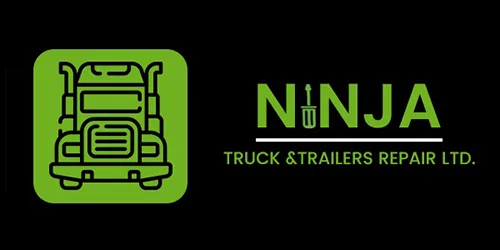Gurkirat Baweja
May 16, 2025
Why the Right Truck & Trailer Repair Services Matter More Than You Think

Why the Right Truck & Trailer Repair Services Matter More Than You Think
If you’re a commercial driver, fleet operator, or logistics manager, you already know that downtime isn’t just frustrating—it’s expensive. Every hour a truck sits idle due to mechanical issues, your operations, schedules, and bottom line take a hit. That’s why having access to reliable truck and trailer repair professionals is more than a convenience—it’s a necessity.
In Calgary’s growing transport and logistics scene, it’s important to know exactly what to look for when choosing a repair service provider. From mobile roadside repairs to full-scale diagnostics, a quality shop can be the lifeline that keeps your business moving.

Early Warning Signs You Shouldn’t Ignore
Not all breakdowns happen suddenly. Most start with subtle red flags that many drivers overlook:
- Hard braking or soft pedal feel
- Excessive smoke or decreased engine power
- Delayed shifting or gear hesitation
- Unusual vibrations at specific speeds
By the time these symptoms become major, you could be looking at costly repairs or even roadside emergencies. The smartest move? Pay attention to the early signs and schedule an inspection at the first sign of trouble.
What Makes a Repair Shop Truly Reliable?
Here’s the truth: not all repair shops are created equal. Some are simply not equipped—or experienced enough—to handle the complex needs of today’s commercial diesel vehicles. So, how do you identify a shop that’s worth your time and trust?
Certified Technicians
Look for technicians trained in commercial vehicle systems—especially air brakes, diesel engines, trailers, and reefer units.
Diagnostic Technology
Manual inspections are good, but today’s trucks need computerized diagnostics to find underlying issues fast.
Emergency Services
Breakdowns don’t follow business hours. Shops that offer mobile repairs and 24/7 assistance are vital.
Preventive Maintenance Plans
Good shops don’t just fix—they help prevent. Ask about ongoing service schedules customized for your mileage, terrain, and cargo type.
Top Equipment Used in Professional Repairs
Here’s a behind-the-scenes look at the tools a high-quality repair center uses to keep your rig road-ready:
- Heavy-Duty Diagnostic Scanners: These quickly detect error codes and sensor issues without guesswork.
- Air Brake Testers: For precise brake inspections and leak detection.
- Suspension Load Testers: Check spring fatigue or airbag pressure imbalances.
- Hydraulic Lifts: Safely lift heavy trucks for underbody inspections and axle work.
- Welding Equipment: On-site structural fixes for trailer frames or body damage.
- Refrigeration Repair Tools: Crucial for temperature-sensitive cargo operations.
If your repair shop isn’t using these tools, you’re likely not getting the most accurate diagnostics—or the safest fixes.
Mobile Truck Repair: Convenience Meets Urgency
Sometimes, getting to the shop just isn’t an option. Whether you’re on a long-haul route or in the middle of a schedule-critical delivery, a mobile mechanic can be your best friend.
Common mobile services include:
- Jump starts and battery replacements
- Hose and belt replacements
- Brake chamber repairs
- Fuel delivery and filter replacements
- Air leak fixes
Mobile repair units act like a shop on wheels—bringing tools, parts, and certified technicians right to your truck’s location. This alone can save you hours or even days of downtime.
Fleet Owners: Here's What You Should Expect
Managing multiple vehicles means higher risk of failures and tighter deadlines. That’s why commercial fleet owners need a partner, not just a shop.
When selecting a truck and trailer repair Calgary service provider, look for fleet-specific perks:
- Centralized scheduling and fleet health tracking
- Digital records of all past repairs and inspections
- Multi-truck service discounts
- Dedicated account managers
- On-site repair contracts for large yards
Fleet servicing is all about consistency, accountability, and speed—and your provider should excel at all three.
How Preventive Maintenance Pays Off
You don’t wait for your engine to seize before changing the oil—so why wait for a breakdown to inspect brakes or air lines?
Preventive maintenance (PM) is your first line of defense. A PM checklist should include:
- Oil, coolant, and brake fluid checks
- Differential and transmission inspections
- Suspension wear analysis
- Electrical system and lighting tests
- Regular grease jobs for moving parts
- Fuel system cleaning and filter checks
This not only extends the life of your equipment but also enhances safety and compliance with commercial transport laws.
Conclusion: Stay Ahead, Stay Rolling
Truck and trailer repairs aren’t just about fixing what’s broken. They’re about planning ahead, investing in safety, and choosing the right people to support your journey.
From mobile emergency response to preventive maintenance and diagnostics, professional service isn’t a luxury—it’s a business advantage. Choose wisely. Your rig, your revenue, and your reputation depend on it.
